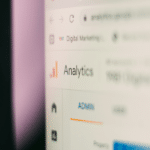As artificial intelligence (AI) becomes more deeply integrated into businesses, young entrepreneurs in New York face unique challenges navigating the regulatory landscape. AI regulations present a mix of opportunities and roadblocks, especially for startups looking to innovate while staying compliant with emerging laws. This article delves into key subtopics that define the complexity of operating within this space.
AI and Data Privacy Compliance
One of the most critical areas for young entrepreneurs is ensuring compliance with AI and data privacy regulations. New York entrepreneurs must navigate both state-level data privacy laws and broader regulations like the General Data Protection Regulation (GDPR) and the California Consumer Privacy Act (CCPA). While AI can drive efficiency and personalization, it also requires collecting and processing massive amounts of data, often triggering compliance challenges.
Regulators are tightening the screws on how businesses handle consumer data. Young entrepreneurs need to prioritize data governance and privacy-by-design principles to avoid penalties and legal repercussions. This includes ensuring transparency in data usage, anonymization techniques, and implementing clear opt-out mechanisms for users.
Navigating AI Ethical Concerns
As AI-driven decisions have profound implications, entrepreneurs must also address the ethical concerns tied to their technology. Ethical AI goes beyond compliance, requiring startups to develop AI systems that are fair, accountable, and transparent. This involves eliminating bias in machine learning models, ensuring that AI outputs are explainable, and building systems that respect human rights.
For startups, navigating these ethical concerns is not just a moral imperative but also a strategic one. Consumers and investors alike are increasingly placing a premium on companies that demonstrate strong ethical AI practices. Entrepreneurs must embed these principles early in their business models to build trust and gain a competitive edge.
AI Opportunities and Innovation
Despite regulatory hurdles, AI presents numerous opportunities for innovation. Young entrepreneurs in New York are uniquely positioned to leverage AI to disrupt traditional industries like finance, healthcare, and real estate. From automating routine tasks to generating insights through predictive analytics, AI enables businesses to operate more efficiently.
However, entrepreneurs must strike a balance between pushing the boundaries of innovation and ensuring they remain compliant with evolving regulations. Those who can successfully navigate this complexity stand to gain significant market advantages as early adopters of transformative technologies.
AI and Employment Law Implications
AI’s ability to automate tasks raises questions about labor and employment laws. Entrepreneurs must carefully consider the legal implications of automating jobs traditionally held by humans. This includes understanding wage and hour laws, anti-discrimination rules, and employee rights.
The use of AI in hiring processes also introduces risks, particularly regarding biases that could lead to discrimination claims. Entrepreneurs need to ensure that AI systems used for recruitment and performance evaluation are compliant with New York’s anti-bias and equal employment laws.
Funding Challenges for AI Startups
Securing funding for AI ventures can be complex due to the perceived risks associated with AI regulations. Investors are wary of placing bets on startups that may face regulatory hurdles in the future. Entrepreneurs must demonstrate not only the viability of their AI innovations but also their ability to operate within the regulatory framework.
To overcome this challenge, startups should develop clear compliance strategies and communicate them to potential investors. Being proactive about regulatory considerations can instill confidence and help secure the funding needed for growth.
Impact of AI Regulations on Business Models
AI regulations can significantly impact the scalability and adaptability of business models. For example, data localization laws, which require companies to store data in specific regions, can increase operational costs for startups. Similarly, the need for continuous audits and algorithmic transparency may slow down innovation cycles.
Entrepreneurs must design flexible business models that can adjust to regulatory shifts. This may involve adopting AI governance frameworks, regularly updating compliance strategies, and staying informed about both domestic and international AI laws.
AI and Consumer Protection Laws
Consumer protection is another critical area where AI intersects with regulation. Startups deploying AI solutions that directly interact with consumers, such as chatbots or personalized marketing algorithms, must ensure they do not mislead or harm users. Consumer protection laws in New York are evolving to cover the use of AI, and startups must stay ahead of these changes.
Entrepreneurs should focus on transparency, ensuring that AI-driven products and services are easy to understand and do not exploit users. This is particularly important for fintech and healthcare startups, where consumer trust is paramount.
Young entrepreneurs in New York are at the forefront of AI innovation, but with that innovation comes the complexity of navigating ever-evolving regulations. From data privacy to ethical AI and consumer protection, entrepreneurs must address these challenges proactively to remain competitive and compliant. Those who can successfully operate within this regulatory landscape are poised to not only innovate but also shape the future of AI-driven business.



















